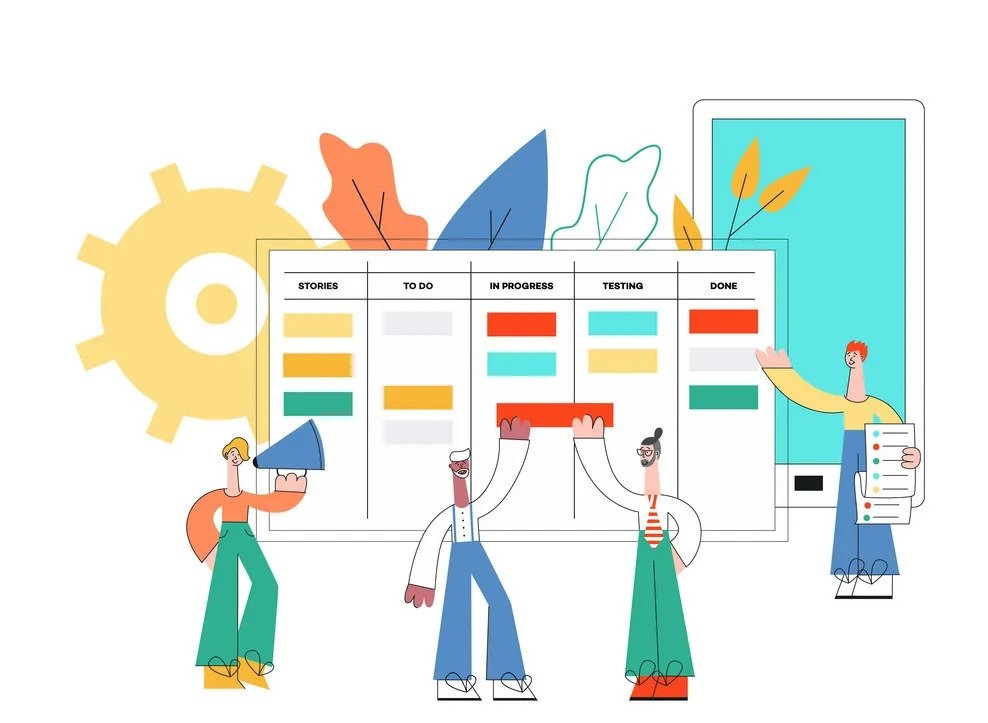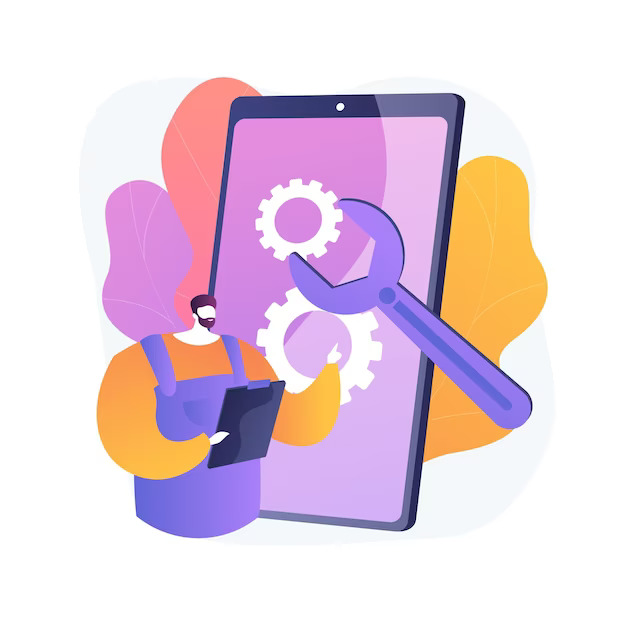
Part of the Scrum methodology, sprint planning is a way for teams to stay focused and on track. It can be tricky at first, but once you get your feet wet, it's easy to see why 86% of Scrum teams hold sprint planning meetings to hit their goals.
Sprint planning is all about preparatory steps before an actual sprint start. It's suitable for experienced professionals and those just learning about agile methodology. Projects such as developing a product, launching a new website, or creating marketing materials are all great candidates to try out sprint planning.
In this article, we explore the purpose of sprint planning, highlight its benefits, and list the best sprint planning tools available in 2023.
What Is the Purpose of Sprint Planning Tools?
Sprint planning is integral to the Scrum cycle, a framework that delivers complex projects through collaboration and iteration. At its core, it’s a process that allows teams to map out the tasks they need to complete for the upcoming sprint. It’s an excellent way for teams to stay on track and manage their time, helping them avoid being overwhelmed by too many tasks.
Sprint planning aims to ensure that everyone knows what needs to be done for the project to succeed. It breaks down large tasks into smaller pieces and assigns them to the right people, which can help keep projects on track. It also helps teams identify potential problems that could arise during their sprint, allowing them to address them before they become more significant issues.
Stakeholder communication becomes easier when teams understand the project and can convey updates to interested parties. For example, they can stay in sync with project progress and ensure that the end product is successful.
Benefits of Sprint Planning Tools
Sprint planning tools provide an excellent way for teams to streamline their workflow, remain organized, and hit deadlines. Other benefits include:
1. Improved Planning and Organization
Suppose you’re planning an event. There's a lot to consider, from the venue to the speakers to the catering. With a sprint planning tool, you can create tasks and delegate them to different people on your team — ensuring that each part of the project is taken care of within the suitable timeframe.
Sprint planning also provides a structured approach to breaking big ideas into smaller, manageable tasks. This breakdown allows teams to prioritize tasks, allocate resources, and identify potential risks or blockers that could delay progress. Teams stay organized by providing a timeline of upcoming milestones, project reviews, and deadlines.
2. Increased Transparency
Sprint planning increases visibility into the development process by allowing everyone on the team to see what's been accomplished and what still needs to be done. For example, if one team member struggles with a task, others can identify and provide extra resources or assistance.
Scrum tools also give stakeholders an easy way to check progress and ensure everyone is working together towards the same objectives. Tools provide access to the project documentation, accessible for anyone who wants to check in, and updates on progress as it's made.
3. Reduce the Risk of Delays
Sprint planning allows teams to plan. By setting up timelines and achievable milestones, teams can anticipate any potential roadblocks or challenges they may encounter while developing a project. This planning ensures everyone works towards the same goal and enables teams to adjust their plans if needed.
You can also create contingency plans for critical tasks so your team can prepare for unforeseen events that could cause a delay in development. For example, if a significant component of the project is delayed, you can quickly pivot to alternative tasks and stay on track.
4. Better Decision Making
Sprint planning enables teams to align around shared goals, stay focused on the task at hand, and make informed decisions along the development process. Teams can also optimize decision-making since sprint planning allows teams to establish a timeline and review processes that provide structure and clarity.
The process also enables teams to make data-driven decisions since they can measure the impact of their decisions using metrics and analytics. Focus on areas of improvement allows teams to identify areas of growth and improvement.
Best Sprint Planning Tools
This list encompasses some of the best project management tools, collaboration platforms, knowledge management systems, online whiteboards, document management systems, and time tracking tools that can make sprint planning more efficient. Each tool offers unique features designed to aid agile teams in planning, executing, and reviewing their work sprints, ultimately helping them stay on track and reach their project goals. Let's explore these tools in more detail.
Project Management Tools
Project management tools, like Asana, Jira, and Trello, provide teams with a platform to create tasks, monitor progress, and design sprints. These tools enable teams to stay organized by tracking tasks and setting dependencies and deadlines. They also allow for easy collaboration among team members, making it easier to exchange ideas and feedback on projects. Some of the best project management tools for project planning include:
Monday
Monday is a powerful project management tool that helps teams plan, track, and manage projects. It features a drag-and-drop interface that makes it easy to create tasks and assign them to different team members. Monday.com also offers analytics tools so teams can measure the success of their project and identify areas for improvement.
Software development teams can customize their project workflow with multiple templates to fit the needs of each sprint and create reports for stakeholders to review. The scrum master can use the timeline view to visualize the project roadmap and keep track of key milestones.
Key Features
- An array of integrations makes it easy to customize your experience
- Highly customizable interface tailored to your individual needs and preferences
- Gantt and Kanban charts to provide a visual representation of progress
- Over 200+ customizable templates to help you get started
Pricing
- Individual: $0 (up to 2 seats)
- Basic: $10 seat/month
- Standard: $12 seat/month
- Pro: $16 seat/month
Trello
Trello is a popular agile project management tool that makes planning and collaboration easier. Its unique interface with boards, lists, and cards makes it easy to create tasks and move them through the stages of completion.
Trello also offers powerful analytics tools to help teams measure their progress and make better decisions when assigning tasks or reallocating resources. Agile teams will appreciate Trello’s array of integrations, which allow you to connect with popular development tools like GitHub and Jira and keep all your project data in one place.
Key Features
- Checklists on each card make it easy to break down complex tasks
- Assign members so everyone knows who’s responsible for what
- Label cards and lists to easily organize tasks
- Automate card actions with Butler to save time
Pricing
- Free: $0
- Standard: $5 user/month
- Premium: $10 user/month
- Enterprise: $17.50 user/month (for 50 users)
Asana
Popular project management tool Asana helps teams plan and manage projects with its boards, task lists and timelines. Select from multiple project views and use the drag-and-drop feature to easily manage tasks and assign due dates.
Automate routine work with custom rules and notifications to save time. Customize workflow management with Asana's Workflow Builder to ensure tasks are moved through the right steps at the right time.
Key Features
- Real-time charts and visual highlights to track progress
- Automate task actions to save time and energy
- Integrate with over 200+ third-party apps
- Unlimited tasks in all plans
Pricing
- Basic: $0
- Premium: $10.99 user/month
- Business: $24.99 user/month
Collaboration Tools
Scrum teams need a platform to exchange ideas, provide feedback and stay up-to-date on progress. Collaboration tools like Slack, Skype and Hangouts can help teams stay connected and on the same page throughout a sprint. These tools also feature chat rooms where team members can discuss ideas in real-time and create an interactive environment for brainstorming. Considering the following collaboration tools:
Slack
Teams looking for a collaboration platform should look no further than Slack. With its simple and intuitive interface, it’s easy to share ideas, assign tasks, or check in with team members about their progress.
Organize conversations into different channels to keep track of all conversations within the project and set reminders to stay on top of tasks. Slack also offers a range of integrations, so agile teams can connect with popular project management tools like Trello and Jira to stay updated on progress.
Key Features
- Unlimited searchable history for easy access to past conversations
- Channel members to keep track of who’s participating in the conversation
- Video & audio calls to facilitate remote meetings
Pricing
- Free: $0
- Pro: $7.25 user/month
- Business+: $12.50 user/month
Microsoft Teams
Microsoft Teams is a collaboration platform that teams can use to organize conversations, assign tasks, and track progress. It allows agile teams to share documents, hold remote meetings, and create channels for different topics or projects.
Data encryption ensures the security of all conversations, files, and activities within your team. Free cloud storage makes it easy to access and share project materials from any device.
Key Features
- Hand-raising and polling to facilitate remote meetings
- Share files and documents within the platform
- Meeting chats for post-meeting recap
Pricing
- Free: $0
- Microsoft Teams Essentials: $4 user/month
- Microsoft 365 Business Basic: $6 user/month
- Microsoft 365 Business Standard: $12.50 user/month
Jira
Known as the best software development tool for agile teams, Jira is a popular agile planning tool that helps teams plan, track and manage projects in a jiffy. It provides users with an interactive sprint board and allows teams to break tasks into manageable pieces across teams with issues, tasks, and user stories.
Use templates to get started and then customize them to fit your team’s workflow. Integrations with AWS, Microsoft Teams, Slack, and GitHub simplify project tracking and keep teams up-to-date on progress.
Key Features
- Scrum boards and Kanban boards for organizing tasks
- Roadmaps to plan and visualize projects
- Reports and insights for tracking performance
- Drag and drop interface for easy task management
Pricing
- Free: $0
- Standard: $7.95 user/month (for 10 users)
- Premium: $15.25 user/month (for 10 users)
Knowledge Management Tools
Your project managers and team members need a reliable knowledge management tool to store and access all project-related documents, files, and information. Knowledge management tools provide an organized platform to capture, store, and share institutional knowledge. Consider the following knowledge management tools:
Helpjuice
Helpjuice is an online knowledge management platform that enables teams to improve customer support and team collaboration by creating and organizing articles in a searchable database. Fully customizable templates allow teams to tailor the platform to their needs, and adjustable permissions ensure everyone has access to the right information.
SEO-friendly features make it easy to optimize content for search engines, and analytics give teams insight into how users interact with their knowledge base. Multi-language support makes it easy to serve international customers and manage support in multiple languages.
Key Features
- Google-like search that makes it easy for users to find the right articles
- Simple learning curve to get up and running quickly
- Powerful analytics
Pricing
- Starter: $120/month (up to 4 users)
- Run-up: $200/month (up to 16 users)
- Premium Limited: $289/month (up to 60 users)
Notion
Notion's knowledge management platform makes it easy to organize information in one central hub that can be accessed by everyone. Create pages and wikis for project-specific notes, tasks lists, and shareable databases. You can also create template pages, so you never start from scratch when organizing information. With a sleek user interface, Notion makes staying organized and efficient more enjoyable.
(Note: While Notion has a plethora of features, some may find it doesn't perfectly align with their needs. In that case, you can check out our post on the best Notion alternatives).
Key Features
- Custom Gantt and Kanban charts
- Full functionality on mobile app to stay on top of tasks
- API integrations to link Notion to other popular tools
Pricing
- Free: $0
- Plus: $10 user/month
- Business: $18 user/month (5+ team members)
Online Whiteboards
Scrum project management requires team collaboration and communication. Online whiteboards allow teams to work together in real time as if they were in the same room. These digital boards provide an intuitive platform that simplifies collaboration and makes it easy to organize projects into manageable pieces. Choose from the following online whiteboard platforms:
Miro
Where collaboration and creativity meet, Miro is the perfect online whiteboarding tool for teams. With an infinite canvas that's fully interactive, teams can quickly create diagrams, flowcharts, plans, and more with a few clicks of their mouse.
Easily share boards with teammates in real-time to review ideas or assign tasks in an organized way. And with 100+ integrations, you can link Miro with other popular tools like Google Docs, Jira, and Zoom to streamline your workflow and make collaboration easier.
Key Features
- 1,000+ expert or community-made templates to get started
- Anonymous voting, live reactions, and reactions to ensure everyone’s voice is heard
- Mobile app for working on the go
Pricing
- Free: $0
- Starter: $10 user/month (minimum of 5 users)
- Business: $20 user/month
Stormboard
A modern and intuitive online whiteboard, Stormboard is designed to help teams stay organized, creative, and on top of tasks. 250+ smart templates help agile teams stay on schedule and keep their projects on track. Comprehensive reports also let teams review their performance and identify areas where they can improve. Its unique feature of turning canvases into living, editable documents makes it easy for documents to evolve and for team members to stay up-to-date on changes.
Key Features
- Workflow integrations with tools like Jira, Microsoft Teams, Google Drive, and Azure DevOps to streamline processes
- Spotlight sections to prioritize ideas
- Navigate and zoom features to keep boards organized
- Infinite canvas so teams can always add ideas
Pricing
- Personal: $0
- Business: $10 user/month (minimum of 3 users)
- Premium Plan: $12.50 user/month (minimum of 5 users)
File and Document Management
A sprint is only as successful as the documents and files that help it run smoothly. File and document management systems are designed to keep all of your important documents in one central location so team members can easily access them when they need to. Whether you need to collaborate on a design brief, review a financial report, or share notes from a meeting, here are some of the best file and document management options available to you:
Google Drive
The holy grail of document management, Google Drive gives teams one central location to store and organize files. Built-in protections against malware, spam, and ransomware ensure agile teams can trust the platform and its ability to keep data secure.
Collaborate with other teams in real-time and effortlessly assign tasks to ensure projects stay on track. And with integrations like Google Docs, Sheets, and Slides, teams can easily share documents across platforms.
Key Features
- Powerful search to find documents quickly
- Multiple file format support, such as PDFs and CAD files
- Real-time collaboration and editing
Pricing
- Personal: $0 (15 GB storage)
- Business Standard: $12 user/month (2 TB per user)
OneDrive
Simplify your sprint planning process with OneDrive. With its easy-to-use tools teams can quickly find and organize files for sharing, editing, or task management. The tool backs up and protects all files with built-in layer of security, so teams can rest assured their data is safe and secure.
Integrate OneDrive with other popular tools like Office 365 and SharePoint to ensure documents stay organized and up-to-date. Teams can access, edit, and create documents on any device for a more streamlined workflow.
Key Features
- OneDrive Personal Vault adds and extra layer of security to protect important files and photos
- Document scanning to quickly and easily upload to OneDrive
- Share and collaborate in real-time with other users
Pricing
- OneDrive for Business (Plan 1): $5 user/month
- OneDrive for Business (Plan 2): $10 user/month
- Microsoft 365 Business Basic: $6 user/month
- Microsoft 365 Business Standard: $12.50 user/month
Time Tracking Tools
Time-tracking tools allow teams to track their progress and measure the time spent on tasks, projects, and sprints. This helps teams get a clear picture of how long it takes to complete certain tasks and where there may be time wasted or opportunities for improvement. With features such as clock in/out capabilities, timesheet approval processes, and in-depth reporting, these time-tracking tools are essential for success:
Toggl
Probably the most recognizable time-tracking tool, Toggl is known for its intuitive design and easy-to-understand reports. With detailed breakdowns of projects, teams can easily identify where their hours are being spent and pinpoint areas for improvement.
Along with the ability to create custom reports, the tool also allows users to set up reminders and notifications to keep everyone on task. Anti-surveillance time tracking also helps protect employee privacy and keeps team members from feeling micromanaged.
Key Features
- Over 100+ integrations so teams can connect their favorite tools
- Simple invoicing and time entry to easily keep track of hours
- Project scopes and budgeting to keep resource costs in check
Pricing
- Free: $0
- Premium: $249/month
- Business: $499/month
Clockify
Manage time better with Clockify's timesheet and time tracker system. Its free plan for unlimited users makes it a great option for small businesses that are just getting started.
Create comprehensive reports that give you an overview of team performance and detailed insights into how much time is devoted to each project. Assign tasks and set timesheets to keep everyone on track and create invoices from billable hours to ensure teams are getting paid for their work.
Key Features
- Kiosk allows you to clock in from any device with a PIN
- Visual calendar makes it easy to get an overview of team performance
- Desktop and mobile app for managing time on the go
Pricing
- Free: $0
- Basic (Administration): $3.99 user/month
- Standard (Timesheet & Billing): $5.49 user/month
- Pro (Productivity & Profit): $7.99 user/month
- Enterprise (Control & Security): $11.99 user/month
Sprint to Success with a Powerhouse of Tools
Sprint planning is only as successful as the tools and resources you use. Investing in the right suite improves team management and allows you to create custom workflows that take your scrum project from concept to completion. With the best scrum tools, teams of all sizes can achieve success with their sprints.
If you're interested in a powerful knowledge management tool that integrates with your current systems and helps you get the most out of your sprints, contact us today to find out more. Helpjuice can help you achieve success in your sprints by organizing and automating processes with an easy-to-use solution. Get started today.



![Guide to Training Call Center Agents [2024]](https://static.helpjuice.com/helpjuice_production/uploads/upload/image/12982/3585033/1698261103181-call-center-agent-turnover-previous-5-years-infographic.jpg)

